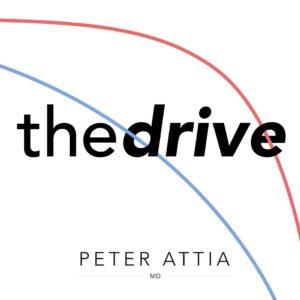
In this episode of the “Modern Wisdom” podcast, host Chris Williamson interviews Max Lugavere, a filmmaker, health and science journalist, and author of the book “Genius Foods.” They discuss the link between diet and mental health, exploring topics such as food regulations, artificial sweeteners, the impact of ultra-processed foods, the Mediterranean diet, and the prevention of dementia. Max Lugavere provides evidence-based insights and practical tips for improving brain health through diet and lifestyle choices.
California’s ban on skittles and other products with cancer-causing additives highlights the need for regulation in the food system. Market-driven food products can be unhealthy and addictive, warranting scrutiny and potential restrictions.
The prevalence of ultra-processed foods in the food supply poses a significant health risk. These foods are nutrient-poor, calorie-dense, and hyper-palatable, making them difficult to moderate. Regulation of certain products that serve as proxies for ultra-processed foods may be a step in the right direction.
Artificial sweeteners, such as aspartame, have been subject to debate regarding their effects on weight loss and negative health outcomes. While the risks may be small, some individuals choose to avoid them due to the precautionary principle and skepticism towards newer products. Non-caloric sweeteners like Alulose and Erythritol can serve as relatively safe alternatives to sugar.
Adopting a Mediterranean-style diet has shown promising results in remission from depression. Depression has been linked to inflammation, which can be modulated through dietary and lifestyle changes. Comfort eating with sugary and highly-palatable foods can contribute to inflammation and low mood.
Resistance training plays a crucial role in reducing inflammation, building resilience, and reducing the risk of cancer. While walking is beneficial for overall health, resistance training is essential for building robustness and maintaining muscle mass.
Contrary to previous beliefs, dementia is not an unpreventable condition. A whole foods diet that incorporates animal products, dark leafy greens, and avoids ultra-processed foods is recommended for brain health. Engaging in real-life activities and building cognitive reserve through learning new skills can also contribute to dementia prevention.
The quality of relationships is a significant determinant of overall well-being and longevity. The story we tell ourselves and share with others shapes our life’s direction and values. Sharing personal experiences and insights can have a profound impact on human life.
This episode of the “Modern Wisdom” podcast with Max Lugavere explores the link between diet and mental health. It highlights the importance of food regulations, the dangers of ultra-processed foods, the controversy surrounding artificial sweeteners, the impact of the Mediterranean diet on mental health, the significance of resistance training, the role of diet in dementia prevention, and the power of relationships and storytelling. By making informed dietary choices and prioritizing overall well-being, individuals can enhance their mental health and overall quality of life.